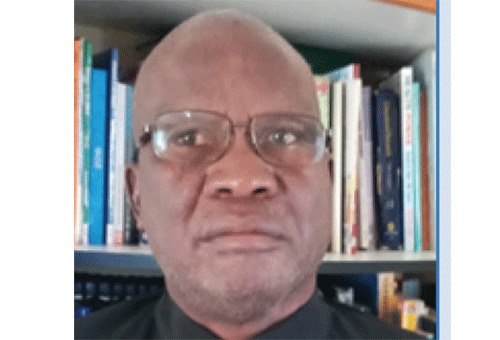Prof. Makala Lilemba
As the saying goes, ‘Simple minds discuss people, while great minds discuss ideas’.
In all discussions, there is always an element of debate, which is the cornerstone of the issues of dialogue.
Although there are many definitions of debate on the academic front, the American Debate League describes it as an organised argument or contest of ideas in which the participants discuss a topic from two opposing sides. It further elaborates that the main aim of a debate is to convince the opposition that the contesting side is right, while the former team equally contend for a similar stance.
When the two sides agree on the subject or when one side’s arguments are more convincing than the other side, the debate comes to a close. As per the rules of debate, it is a fundamental principle of procedure that debate is conducted in a free and civil manner. To ensure this, rules of debate and decorum are developed, which govern what members may say and do during the debate.
There are formal and informal levels at which debates can be conducted – like friends debating on an issue of common interest, while family members may also engage in dialogue over home issues. The formal debates may include parliamentary ones and others with official status.
Apart from conducting the debates at the said levels, school systems have been conducting debates in one way or another.
In some universities, debating clubs have been established to encourage students to hone their debating and linguistic skills.
In the process, debate participation promotes problem-solving and innovative thinking, and it helps students build links between words and ideas that make concepts more meaningful.
In debate, students are taught to synthesise wide bodies of complex information to exercise creativity and implement different ways of knowing.
The primary goal of a debate is for students to generate effective critical thinking into primary issues in the given topic.
Those who take part in debate are expected to develop a spirit of tolerance and accept and respect others’ points of view. In other words, one should not expect to be winning the debate all the time or impose opinions on others without convincing facts.
It is also crucial that during the debating session, it is the topic that should be discussed and not attacking the personality of another debater.
Unfortunately, and despite all the laid down rules of debate, it is quite disturbing to note how some people in this country behave when debating issues of national importance.
The debate about intolerance starts in the high office of the land, where even informed topics of discussion are always rubbished, and the proponents are told to take their lectures somewhere else.
Instead of listening to sound reason, the office sometimes ridicules the messenger and the message, inhibiting creativity in the process. Of course, it is not expected for the high office to swallow everything that comes its way, but after sifting through messages, useful information could be siphoned.
It is equally true that the high office has its channels of handling debatable issues – but if the topic brought before the authority is not in its line of duty, it can respectfully inform the proponent.
The incumbent of the high office is an elected member, and it is accountable to the electorate; the spirit of listening may assist by picking issues from the messages and applying them in the formulation of policies, which enhance governing the state.
In a similar vein, honourable members of parliament have gone out of their way when it comes to debating issues of national interest.
What is happening there is simply character assassination of the highest order in which some members have the license to threaten others who disagree with their points of view.
Whereas it is true that the honourable members of parliament have immunity status and should not be persecuted for what they say in that house, it is equally required of them to debate issues not individuals in their capacity.
There are also issues that are being debated on social media, especially on Facebook and WhatsApp groups, in which the rules of debate are not respected.
Instead of addressing the issue being discussed, many group members go out of their way and attack, humiliate and even threaten other debaters.
Namibians, with their education and religious principles, should be seen to be tolerant and civil when sharing their ideas and opinions with fellow citizens.
Many times, some of the media houses are caught in this web of unprofessional debating.
Despite the ethics enshrined in their editorials, they continue allowing themselves to be guilty of scandalising certain individuals.
The academicians in some institutions of higher learning have joined the fray of unhealthy debates. In the world of academia, if research conducted is not in line with the expectations, it is imperative for the scholar to seek redress by conducting another one over a similar topic.
It should be understood that people come from different socio-economic backgrounds and align themselves to different ideological schools; therefore, they cannot think and act alike.
It should not be expected to think that whatever one says will be received wholeheartedly by others without any disagreement of opinion from others.
That is where the issue of discussing the topic at hand should come and not the person holding such views.
* Prof. Makala Lilemba is an academician, author, diplomat, researcher and scholar.



